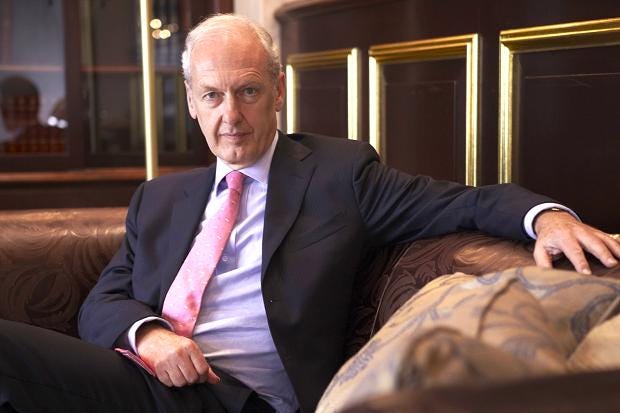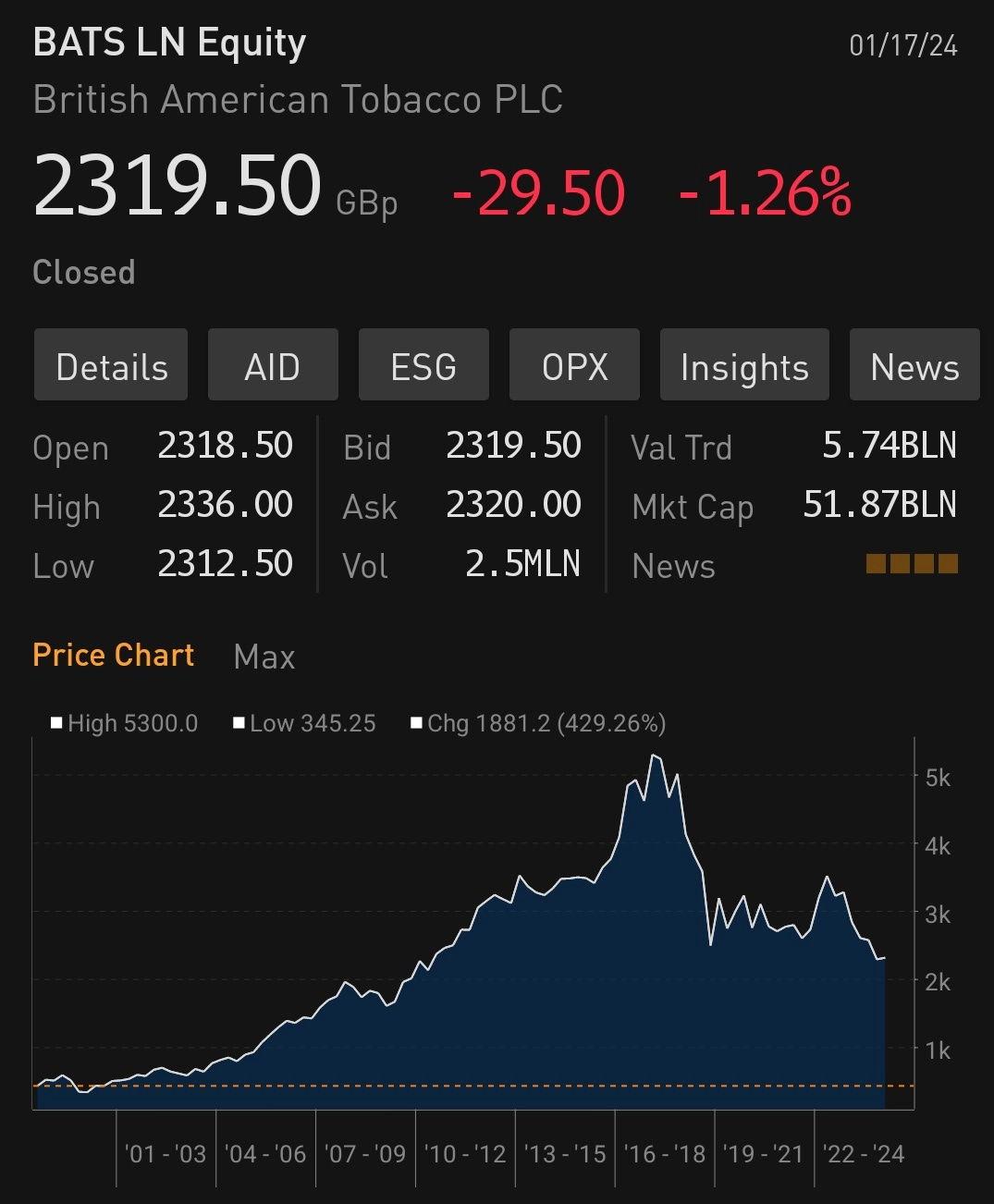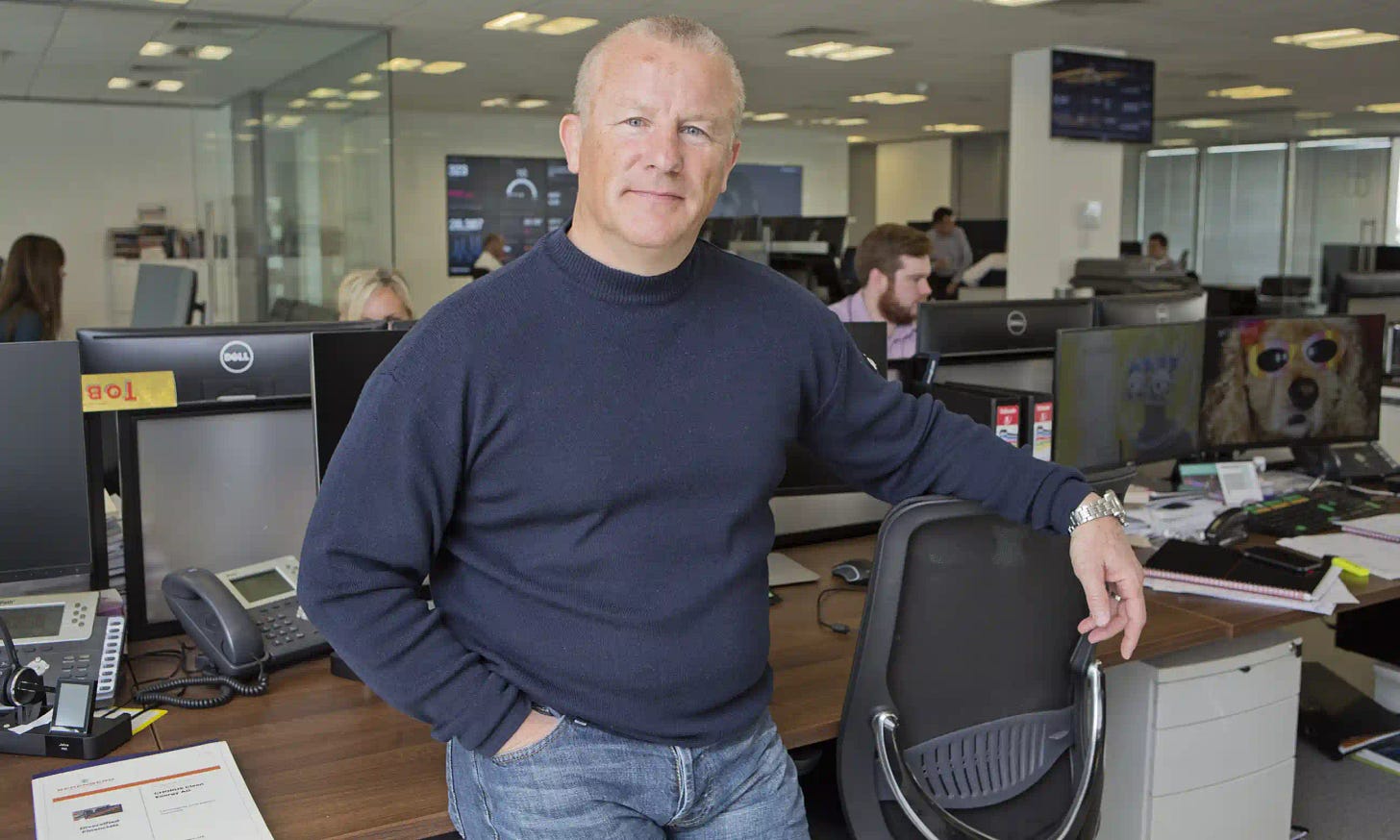For obvious reasons, I have been thinking about whether fund mangers should come out of retirement. First of all, to answer this question we really need some context. There are loads of fund managers out there. The vast majority are closer to product managers than what I would call fund managers. Their objectives tend to be quite explicit - and the decisions they can take are relatively limited. This may sound technical but they are pretty easy to identify. Their communications to investors will talk about tilts, underweights, overweights and sharpe ratios. Normally, these fund managers are in direct competitions with low-cost index trackers, so have limited pricing power. As they also paid to be generally full invested, they rarely have contrarian positions to the market. Outperforming the market with these style of funds, after fees, is extraordinarily hard. Typically the business is build around a distribution model, and it is very rare these fund managers reach the public recognition that would cause their retirement to noted by anyone other than their immediate colleagues and friends. Coming out of retirement is rarely an option for these guys.
The second type of fund manager tends to be far more aggressive, and takes extreme views on markets, and will, if they are any good, gather media and market attention. Perhaps the most famous would be Soros, the man that broke the Bank of England. But there is a long list of rockstar fund managers. Chanos, the man who broke Enron. Paulson, the man who broke subprime. The upper echelon of “rock star fund managers” is almost always left to fund managers who make money while the majority lost money. This is for the simple reason that allocators not only love fund managers that help them outperform in down markets, they are very likely to save their careers. They also make their money very quickly.
In my mind, and no doubt controversially, in the second tier of fund mangers are the long only fund managers that crush the market. Top of the list here is no doubt Buffett and Munger. But there are whole range of other famous investors, such as Peter Lynch, Bill Miller, Anthony Bolton and Mark Woodford who are all extremely successful long only investors. You might ask how I can rate Buffett and Munger below a Soros. As businessmen, Buffett and Munger are without peer. And their successful business acumen, allows them to take risks that no fund manager with outside money could take on. Fund managers need to raise money, and make money and hold on to money. If Buffett and Munger ran a fund rather than an insurance based conglomerate, they would have seen significant outflows in 2008, greatly hampering their ability to invest. But their insurance business with their float, and tax advantaged situations are fantastic business that no one else seems to have replicated.
Anyway, my concern is whether “rock star” fund managers should come out of retirement? My list is based on fund managers that have I can remember coming back from retirement, so is a non-exhaustive list. Soros never really retired, but from what I know is still sharp enough to keep an eye on markets. Chanos, just retired, but he did launch a very large short biased fund back in 2016, which did not do well. Paulson, had one big trade in 2007/8 - and basically not troubled the markets again. You could potentially treat Paulson and Chanos as “one trick pony” - an accusation that I have faced myself from time to time ( I like to think I am closer to a two and half trick pony).
Anthony Bolton was a leading UK fund manager who greatly outperformed the market for many years, with his Fidelity Special Situations Fund - one of the biggest funds outside of the US at its apogee. After retiring from this fund in 2007 he came back to the market with a China Special Situations Funds in 2009. I remember at the time he said he saw a similar set up in China to what he had seen in the UK in the 1980s. I personally had doubts. My experience was that China was heavily driven by government policy, and that trying to apply lessons from the UK would have limited success. In the end, the fund raised significant capital. Ultimately performance was very mixed, and in 2014, he retired for a second and final time.
Neil Woodford did not exactly retire. Woodford left his role at Invesco, where he had been a super succesful fund manager to set up Woodford Investment Management. His big thing at Woodford Investment Management was that UK unlisted tech companies were severely undervalued. The big risk he faced was that the funds were more liquid than his underlying investments. He ran the risk of facing redemptions before he could realise the value of this speculative stocks. My understanding was that one of his greatest successes at Invesco was convincing tobacco firms to return capital to shareholders after the share prices had been decimated in the 1990s. The performance of British American Tobacco was phenomenal, at least until 2017. Shifting from a more “value” investing to a speculative style was definitely a red flag.
I think perhaps another red flag was that he took to only being photographed in a black jumper, not quite a turtleneck, but close enough to Steve Jobs and Elizabeth Holmes to suggest that perhaps there was a risk of overconfidence.
Generally speaking fund managers coming out of retirement don’t have the best track record, but recently we have seen two former fund managers do quite well. Greg Coffey stepped away from his GLG Emerrging Market Fund in 2008 but has recently reappeared with his new firm Kirkoswald, which seem to be doing very well. Martin Taylor, who was at the very successful Thames River Nevsky, retired from markets in 2010, but returned to markets in 2019 with Crake Asset Management. I cannot tell you how well either are doing, as performance and AUM seem to be private. But as far as I can tell, neither has retired from markets again. My working assumption is that both are doing well.
Given a limited subset of fund managers that have retired and then returned to the market, any conclusions have to be tentative at best. But I think we can look for some red flags. Anything that smacks of a mid-life crisis or vanity driven should probably be seen as a red flag. In particular, when associated with a radical change in investment style of focus. Here I worry a little, as I am thinking in terms of a return to 1950 and 1960s style markets, so I am venturing away from my old style, but with justification I think.
Am I suffering a mid-life crisis? Potentially, but when I look in the mirror and see this, I think I must be fine.
All jokes aside, I do have mixed emotions about potentially coming out of retirement. But the logic of markets seems to say to me that it might be an opportunity too good to pass up.
















